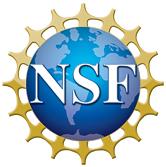 The National Science Foundation (NSF) last week issued a new solicitation under its Integrative Graduate Education and Research Traineeship (IGERT) program, providing a specific track for training the next generation of researchers in computational and data-enabled science and engineering. The solicitation is part of the Foundation’s (and Administration’s) Big Data Initiative, which was announced last month.
The National Science Foundation (NSF) last week issued a new solicitation under its Integrative Graduate Education and Research Traineeship (IGERT) program, providing a specific track for training the next generation of researchers in computational and data-enabled science and engineering. The solicitation is part of the Foundation’s (and Administration’s) Big Data Initiative, which was announced last month.
According to the new solicitation (emphasis added):
Building upon the IGERT platform, the purpose of this IGERT solicitation is to support new models in graduate education in which students are engaged in an environment that supports innovation to learn through hands-on experience how their own research may contribute in new ways to benefit society and to learn the processes for the successful implementation of such contributions.
Within the Cyberinfrastructure Framework for 21st Century Science and Engineering (CIF21) and IGERT, NSF recognizes the need to educate and support a next generation of researchers able to address fundamental challenges in 1) core techniques and technologies for advancing big data science and engineering; 2) analyzing and dealing with challenging computational and data enabled science and engineering (CDS&E) problems, and 3) researching, providing, and using the cyberinfrastructure that makes cutting-edge CDS&E research possible in any and all disciplines.
Through this amendment to the IGERT solicitation NSF 11-553, a new IGERT-CIF21 track has been created as a mechanism to address the training and education needs in CDS&E and cyberinfrastructure research.
In particular (following the link):
Of particular interest for this track are focused interdisciplinary efforts that involve
- Partnerships between computational, mathematical and statistical, and computer and information sciences on the one hand and the science and engineering domains on the other, that drive interdisciplinary research in cyberinfrastructure (software, data and visualization, networks, advanced computational infrastructure, etc.);
- Foundational and applied research in a variety of tools essential for advanced scientific discovery and engineering innovation in collaboration with domain sciences. Such tools could include computational models and the underlying mathematical and statistical theory and methodology; parallel programming languages; novel algorithmic techniques; real-time visualization; scalable data mining; effective utilization and optimization of computing, storage, and communications resources;
- Research and development of novel end-to-end science-driven scenarios that integrate and leverage major cyberinfrastructure investments including high-end supercomputers, cloud environments, real-time and remote visualization, provisionable networks, distributed data archives and software frameworks;
- Integration of educational and training opportunities with major cyberinfrastructure investments such as
- XSEDE, Open Science Grid, FutureGrid, DataNet partners, the Global Environment for Network Innovation (GENI), International Research Network Connection sites, et al.; (see www.nsf.gov/cif21 for a more extensive list of cyberinfrastructure components)
- ongoing NSF Major Research Equipment and Facilities Construction (MREFC) projects or other large scale efforts such as iPlant or Network for Computational Nanotechnology;
- cyberinfrastructure-related facilities managed by NSF, by other states or US federal agencies, or internationally;
- Synergies in cyberinfrastructure and CDS&E research with ongoing and emerging activities in CIF21;
- Significant impact on new curricula and career possibilities for cyberinfrastructure and/or CDS&E;
- Research, education and outreach activities that are expected to have a significant impact in developing an increasingly diverse STEM workforce that is inclusive of women and men, underrepresented minorities, and persons with disabilities.
There is a limit of one submission per institution, beyond any regular IGERT proposal. Letters of intent are due by June 4, 2012, and full proposals by Aug. 6, 2012.
Up to two awards are anticipated, each totaling a maximum of $3.3 million over five years, with the possibility of an additional $200K per award to support integrated international research activities.
To learn more, see the full IGERT-CIF21 solicitation. And see our previous coverage of the broader Big Data Initiative here.
(Contributed by Erwin Gianchandani, CCC Director)










Trackbacks /
Pingbacks